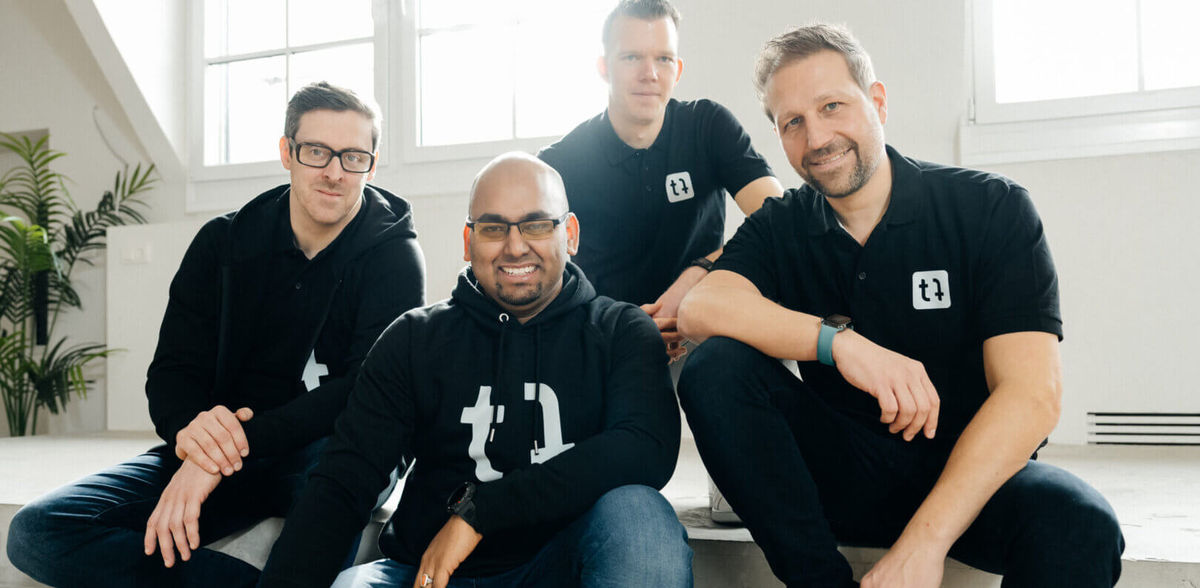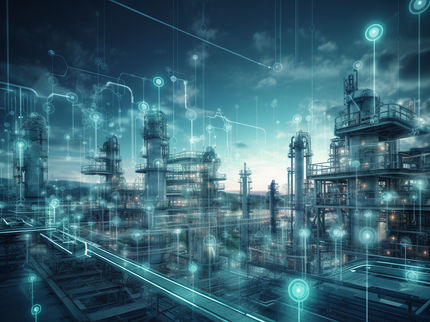Creation of digital twins of machines in minutes
AI startup Tomorrow Things simplifies and accelerates complex digitalisation of machines: EUR 1.5 million in seed funding
AI start-up Tomorrow Things has secured €1.5m in funding to continue the development of an AI-powered Operating System for machines on the internet. This solution will save clients up to 90% in manual integration and other costs.
An investment to make AI fly
Tomorrow Things’ €1.5m funding was acquired during the latest round that was led by seed investor High-Tech Gründerfonds (HTGF) and early-stage Venture Capital fund, neoteq ventures, supported by European VC firm Notion Capital, solo GP Robin Capital, and a number of business angels specializing in fundraising, marketing, and B2B SaaS (Christian Noske, Maximilian Eichler, Thomas Lang, Thomas Hollwedel, and Markus Doetsch).
"Significant costs for system integrators and complex service operations on cloud infrastructures are slowing down digitalization. Tomorrow Things is a sales and integration accelerator that is opening up exciting new opportunities across the IoT ecosystem. The founding team has unique experience building twins and knows how to enhance data quality to make AI fly," Johannes Dierkes, Investment Manager at High-Tech Gründerfonds.
Building an Operating System for Tomorrow
The Bonn-based start-up Tomorrow Things demystifies the daunting complexities of automation for less-technical users to connect their machines to the industrial internet within minutes. This process usually takes several days or sometimes weeks and typically involves significant resources. The Tomorrow Things solution is up to 90% cheaper than existing alternatives.
The founders – Oliver Habisch, Dr. Christian Dierolf, Ankur Srivastava, and Marcel Zimmerling – have ten years’ worth of experience in closed-loop AI control, which they previously used to increase the process stability of industrial assets and the efficiency of commercial buildings by more than 20%. They have experience creating control policies that work autonomously and adaptively within pre-defined system limits that humans can then monitor or react to when deviations occur.
Tomorrow Things’ SaaS solution “Cloud Connect” consists of an intelligent automation tool that creates digital twins of machines. These digital twins offer real-time virtual replicas of physical assets, processes, and even entire factories, with which manufacturers can run simulations to rehearse different scenarios before implementing them in reality. This allows them to optimize production lines, predict potential issues, and make informed decisions without impacting real-world operations. Digital twins collect and analyze data from sensors, machinery, and other sources, providing valuable insights into performance, efficiency, and potential problems. This data empowers manufacturers to make data-driven decisions rather than relying on intuition or guesswork.
CEO and co-founder of Tomorrow Things, Oliver Habisch, states that he and his team are “developing the operating system for machines on the Internet. We are the AppStore for asset blueprints supporting easy onboardings and third-party AI services on top of digitalized assets to make the world more sustainable and efficient.”
Using AI-generated blueprints to digitalize at the push of a button
Open-source integration tools are already being used widely today. Paradoxically, this is where the problem lies. These tools require highly qualified users to get the job done, and therefore an increasing need for highly skilled workers. To cite an example: a machine manufacturer – partnering with Tomorrow Things – offers around 250,000 data objects in its machine interface, including both significant and insignificant ones. The user is responsible for manually analyzing the importance of each object and deciding whether to select this object for the twin application. As a result, the manual approach is monotonous and error-prone, even for the most qualified people. This inevitably leads to data quality issues, a lack of employee satisfaction and consequently, staff fluctuation.
Onboarding a machine’s interface is time-consuming, complex, and cost-intensive. But with Tomorrow Things, these manual machine onboardings are being automated and standardized via machine blueprints – comparable to a fingerprint – used to build a digital twin with just one click. The digital representation offers many opportunities for optimization, e.g. finding better input parameters, which results in less material waste, energy consumption, downtime, and improved production performance and profitability. With a dynamic view of their operation, manufacturers can quickly identify bottlenecks and inefficiencies in their production processes.
Opening up exciting opportunities across the IoT ecosystem
Tomorrow Things aims to become the operating system (OS) for machinery worldwide. Skills from the traditional industry and startups are intelligently combined. Third-party providers will connect to the OS and make their own AI applications available in an AppStore that drives business outcomes for onboarded assets, ultimately unlocking as-of-yet untapped value for end-customers. Tomorrow Things enables secure bidirectional data transfer between machines and internet applications. AI-driven control strategies can be created centrally by value-add partners and operated on the edge to execute optimized setpoints in the machine interface that achieve better results.
Core business instead of in-house development
As of today, customers and interested partners can learn more and register for the AI startup’s service on tomorrowthings.com. Timo Günzel, Chief Technology Officer of Bole Intelligent Machinery Co, Ltd, has already been able to test Tomorrow Things Digital Twin platform as part of the closed beta.
"As a machine manufacturer, we have spent far too long developing our own software. Today, we concentrate on our core business and combine a digital twin from Tomorrow Things as standard ex works. The digital USP also provides a remote service option for customers and drives interoperability in heterogeneous machine parks as well as with industrial software solutions, so that our assets can be seamlessly integrated into existing system landscapes," Timo Günzel, Chief Technology Officer of Bole Intelligent Machinery Co, Ltd.
Other news from the department business & finance
Most read news
More news from our other portals
Something is happening in the chemical industry ...
This is what true pioneering spirit looks like: Plenty of innovative start-ups are bringing fresh ideas, lifeblood and entrepreneurial spirit to change tomorrow's world for the better. Immerse yourself in the world of these young companies and take the opportunity to get in touch with the founders.




























































